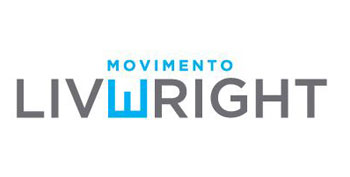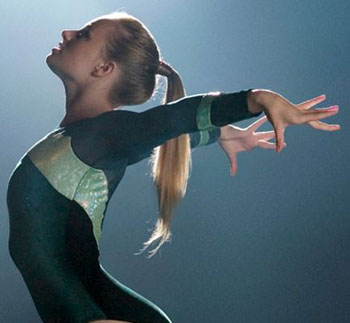Supporting Sports in Brazil: LiveWright
LiveWright is a failry new organization which aims to improve the sports in Brazil and make Brazil once again an Olympic winner in various sports such as gymnastics or track cycling.
Interview with João Paulo Diniz and Luis Resende, LiveWright
What was the original idea behind the creation of LiveWright? Why did you decide to do so with the support of the private sector and what are your expectations for the future?
The most important thing with LiveWright is to develop and support the principles of the private sector. We started with a group of entrepreneurs from Sao Paulo and Rio who had done a great deal in sports and so, we decided to do many things for Brazil in that regard.
Operationally, we think it’s very important to help and support these sports’ entities professionalize themselves. To bring the values and the principles, it is absolutely crucial to help them absorb these things and practice in order to have success in their areas.
What kind of outcome is LiveWright expecting? What is the vision of LiveWright? Is it to support athletes in such a way that they can obtain medals in the Olympics?
This is one of the goals that we wish to achieve, but there is more to it than just that. While it is one of our targets, it is not the main target – the main target is to develop sports in Brazil in the next 10 to 20 years to come. We know that we have a good chance of changing everything this way.
The Olympics are obviously important because they are a catalyst for doing what we are trying to do, and there is no better time to embark on this initiative than now, with all the excitement that has been created by the Olympics. But I think that it is mostly to create structural and perennial changes in sports. It’s not the question of doing something for 2016 and winning medals. It’s okay if we don’t get all the medals, as long as sports become more professionalized, that we enact structural change. We also want to create models for sports; we have a few right now, but we think we can have many.
As a representative of the private sector, why do you think private companies should decide to support and sponsor you and invest their money in your enterprise, instead of public institutions?
Traditionally, the private sector has been less than happy to invest in sports, because they haven’t seen adequate governance of sports entities, which has made them shy away from investing. I think they see an opportunity now, in a group called LiveWright, who talks the same language as the rest of the private sector, who is willing to implement private sectors principles and values into professionalizing sports. Therefore, I think we give them a certain amount of comfort that if they invest through LiveWright, their money will have a good return in terms of developmental sports.
We are expecting to eventually disappear because that will mean that we have done our job.
That does not mean that federations and confederations are not partners in this sector; they have to be, because after all, they have the technical expertise, which LiveWright does not have. By combining this technical expertise that they have with the management expertise that we have, I think we get a recipe for a high degree of success when investment is concerned.
What are some of the challenges that you are expecting on the road? Perhaps you are meeting some resistance from the federation because LiveWright is bringing something new?
In my opinion, we have political challenges, because we have different kinds of federations and confederations and the structure in Brazil is hard to change. Still, I don’t think it too hard to face those challenges, because people are getting to know the name LiveWright and they need something like what LiveWright is doing. We need to do an interchange with other countries and receive the best possible teaching we can have in sports in order to train our coaches.
We have to remember that we are trying to do something which has never been done before, neither by the private sector nor an organization representing it. The very fact that it is a new idea raises doubt and questions, so we cannot fool ourselves by thinking that there won’t be challenges along the way. If there is an establishment in sports that sees this new initiative coming along, they will think (and it is expected) that we may somehow be a threat. That is why we must make it clear that LiveWright is only here to contribute, not endanger what they are doing. If we partner in the areas where there can be partnerships, I think we can build mutual trust and add to sports instead of competing for it, which is not the idea at all.
You have always been a non-profit organization. How do you compromise being sort of a private institution with having non-profit goals?
We are the kind side of the private sector. We are a non-profit organization; that much is clear. None of the people involved, none of the board members think they are going to make a lot of money out of this. This is not the issue. I, for one, am not here to do this. We want to bring what’s good from the private sector for the good of sports for we believe that will enact bigger changes in the country. I don’t think there’s any contradiction here. The private sector in Brazil can and has the duty to play that role in society and support it, so I don’t see any problems there.
You have said that this has never been done before in the whole world.
Maybe somewhere else in the whole world but definitely not in Brazil, that is for sure. Traditionally, money in sports has come from the public sector – the public banks and the public institutions. We are now trying to balance that a little more evenly between the public and private sectors.
How did you get your inspiration? Surely you have studied what other countries do.
We have to look for models all around the world. We have seen that these kinds of efforts had good results and this is also what the people of LiveWright think. There is a little bit of comfort in somehow following other models – we got our inspiration from them as well – and this is what leads us to believe that this is the right thing for us to do.
Can you give me an example of a country that inspired you?
I think the countries themselves are not the inspiration; the inspiration comes from your beliefs, and we believe that LiveWright is an enterprise that is worthwhile to do. But to give examples of countries, I would say that England and Australia do this very well. Spain, also.
You have already started with some sports. What are the initial results you are getting?
The results in sports are made in many years, not so quickly. We just started. However, our first move was to look for the services of a very famous Russian coach who once completely changed gymnastics in Brazil and is currently back in the country, doing a very good job at what he does best.
Women’s gymnastics is really the only project that has started. As for track cycling, it is going to start next month. Clearly, bringing that coach back in Brazil is a huge victory in itself and has already had great impact. I think word has been going around. There is a 13-14 year-old girl who couldn’t train in Brazil and went to California for that purpose. We just brought her back. I think the fact that we are now able to offer an alternative of high quality training in Brazil can bring back some of those athletes that had left the country in order to train.
There is another goal that we have. Many companies have come to us for consulting – public companies that traditionally invested in sports and that need our knowledge in management. Companies are starting to recognize the value of what we have to offer. I think that we are offering a compelling way of doing things and as we go to companies to raise funds, the conversation revolves around what we can do to optimize and maximize their investments in sports, because companies, mostly from the public sector, have put a lot of money in sports with questionable returns.
That is why they look at this model, at what we can do for them, and they say they can help sponsor our projects, but that they also need our help in projects they have already taken part in. We see this as a compliment. We must be sending a compelling message, otherwise they wouldn’t come to us like that. But it’s also an opportunity; not only to direct some of the current investments in the right direction, but on the long term, we can see that as a possibility to generate more funds that we can pump into LiveWright to develop sports in Brazil and make profit.
Clearly, most of the people you meet are very enthusiastic about your project. But have you met resistance from companies who just don’t believe in your model? Do you have any concerns?
Not resistance. Some companies choose other ways to make investments into sports, but they do not show resistance in any way. I don’t remember hearing about a company that did not believe in our model. We are not getting into a Greenfield situation. There are already investments out there, so companies can’t suddenly switch from what they have been doing to something else.
What we have heard from companies is that they are willing to experiment with us on that basis. ‘I will do something with you if you help me with what I already have’, which of course makes all the sense in the world. If you already have some investments, and there is a model you believe in, why shouldn’t you apply that model to your existing investments?
There are limitations to that, obviously. We couldn’t possibly address all the existing investments, but we have a job to do now, which is to start by doing some of the projects with these companies. Eventually, I think that we will create a wave big enough for other organizations to follow our model. One of our expectations is for our model to become the recognized model, like a quality stamp for management of sports. If we can do that, that would be a huge victory.
We are expecting to eventually disappear. If we implement this model and that gradually the others follow that model, there won’t be any need for LiveWright anymore.
If you project yourself fifteen years in the future, what do you want to see LiveWright become?
We want to see it disappear, because that will mean that we have done our job. Brazil is a big country, so we have a lot of work to do, but I think that we can develop many kinds of sports here. We have great potential, so I think that Brazil can really benefit from that. We should be in the first three of the medal count, and we should be able to see federations and confederations able to raise their own money themselves, to manage themselves adequately. We want people to think differently from how they think now; that things are not done the way they should be. These are tremendously high goals for sports in Brazil, so the idea that LiveWright will disappear is somewhat punctured, to say the least. But if we don’t think that way, we will not achieve our goals.